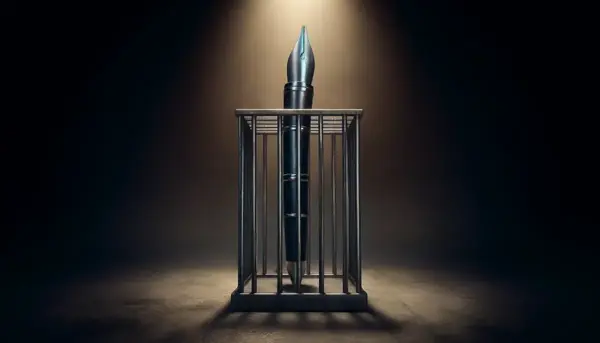Censoring Investigation and Trial News
"It is forbidden to comment on court decisions that are not final or definite," said Erinc.
"The draft bans both comments and news. Prosecutor's readings could be criticized in the past. Now, that is forbidden too," he criticized the draft.
"The draft law makes news on gangs and corruption more difficult to write ahead of the hearings," added Zeyrek.
Erinc: Draft envisages censorship
Erinc and Zeyrek especially drew attention to article 19, which has the title, "Influencing Justice." They said the draft largely limits news about judicial procedures."
Erinc said it was positive that the draft allowed foreigners to become media owners but criticized the fact that the draft made it possible for people convicted of disgraceful crimes to become editors-in-chief.
Erinc said the following about the draft:
* Journalism is a profession of respectability. They criticize that "everyone is becoming a newspaper owner," and on the other hand, they are making it possible for more and more people to own newspapers.
* It is positive that with the draft, it is no longer forbidden to write about administrative investigations and inspectors' operations. But that does not solve the problem. Since no information can be published before a trial is finalized, this article effectively means censorship.
* For example, journalists will not be able to make public the indictment prepared by a prosecutor about a group or a person.
* Article 10 of the European Convention on Human Rights envisages some limitations so the judicial process is healthy. But it is wrong to completely ban all news.
* The current Press Law leaves it up to the judge to decide on fines handed to local and regional media organizations. The draft makes the proportions of one third for local and two thirds of regional media compulsory.
* The draft further guarantees the right of journalists not to disclose their sources. The journalists will not serve as witnesses.
Zeyrek: Confiscations continue
Zeyrek criticized the fact that the draft attempted to ban news about trials. She said it was unacceptable that a judge could order the confiscation of all printed material based on articles 155, 311 and 312 of the Turkish Penal Law (TCK) and article 7 of Turkey's anti-terrorism law (TMY).
Zeyrek emphasized that the state had many excuses for censorship. She said "social morality," "national security," "public order-public security," and "preserving territorial integrity," "revealing state secrets," "preventing crime," "maintaining judicial power" were all excuses for censorship and added this implementation worried her.
Zeyrek said fines were still too high despite a decrease. She said a media organization could be handed a fine of 150 billion Turkish lira (USD 110,000) if it does not publish a correction despite a judge order. (EO/BB/EA/YE)
BİA MEDIA MONITORING REPORT 2024
The government made journalists' lives a living hell in 2024
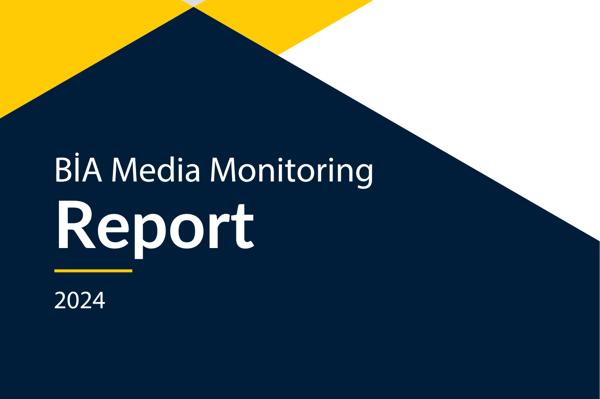
BİA MEDIA MONITORING/OCTOBER-NOVEMBER-DECEMBER 2024
Truth concealed through repression from all sides targeting journalists
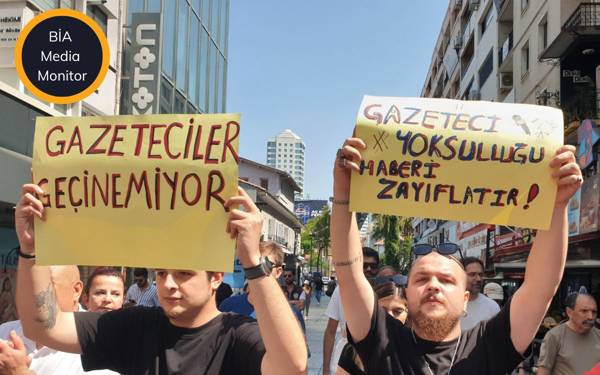
BİA MEDIA MONITORING REPORT
Just silence the journalist, and I won't touch you!
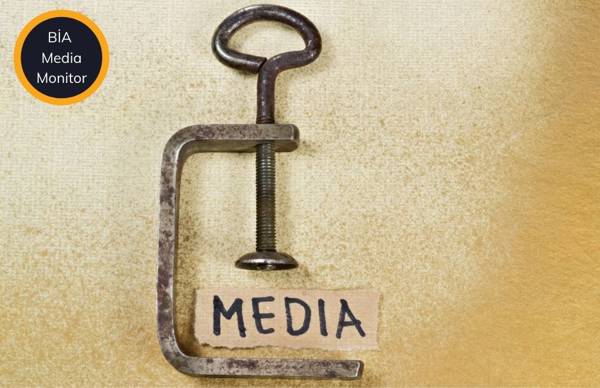
BİA MEDIA MONITORING APRIL-MAY-JUNE 2024
Journalists are on the target and have no legal security anymore!
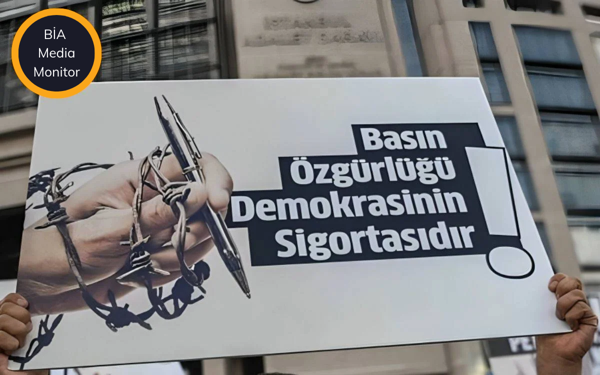
BİA MEDIA MONITORING REPORT
The era of 'judicial control' confinement and torture in journalism
